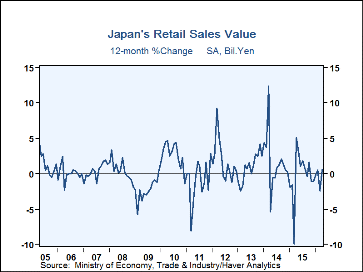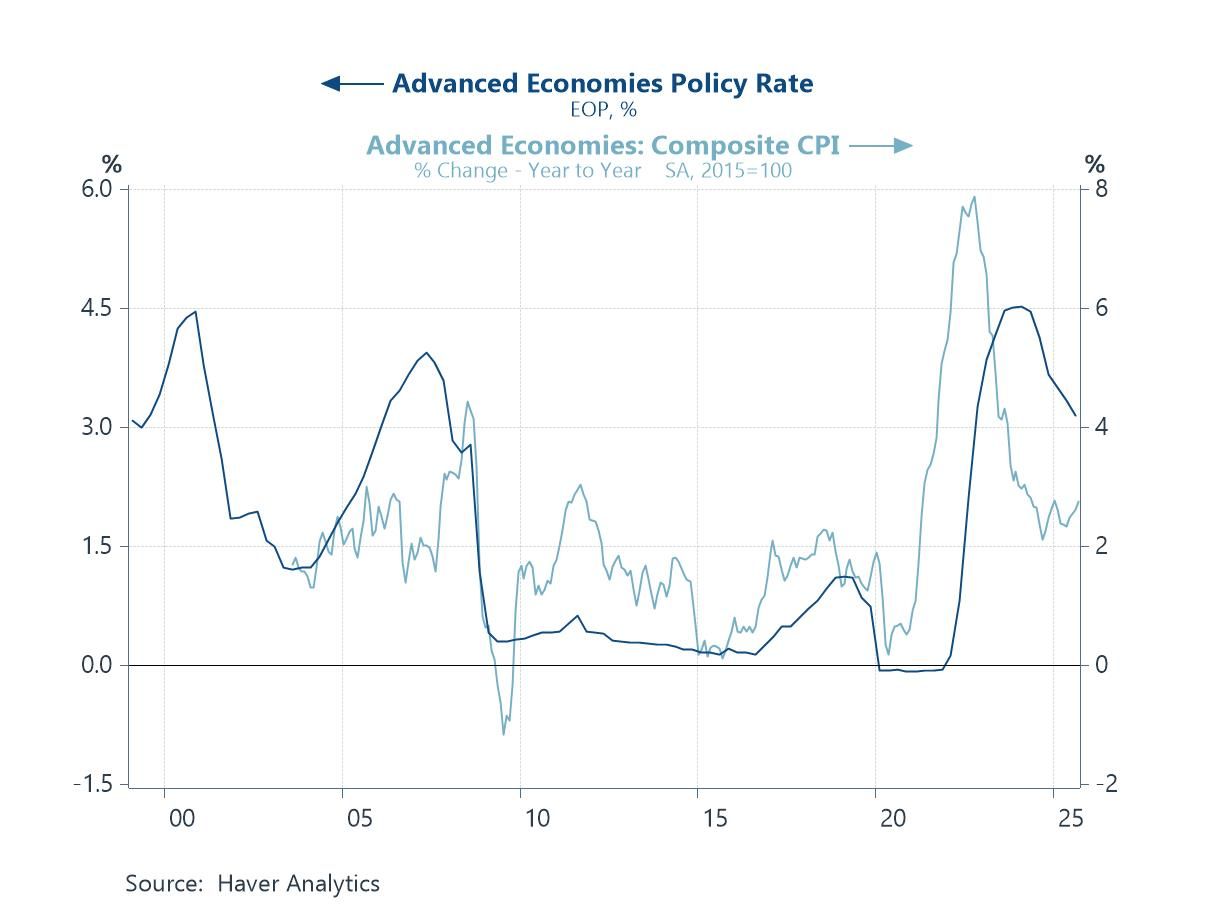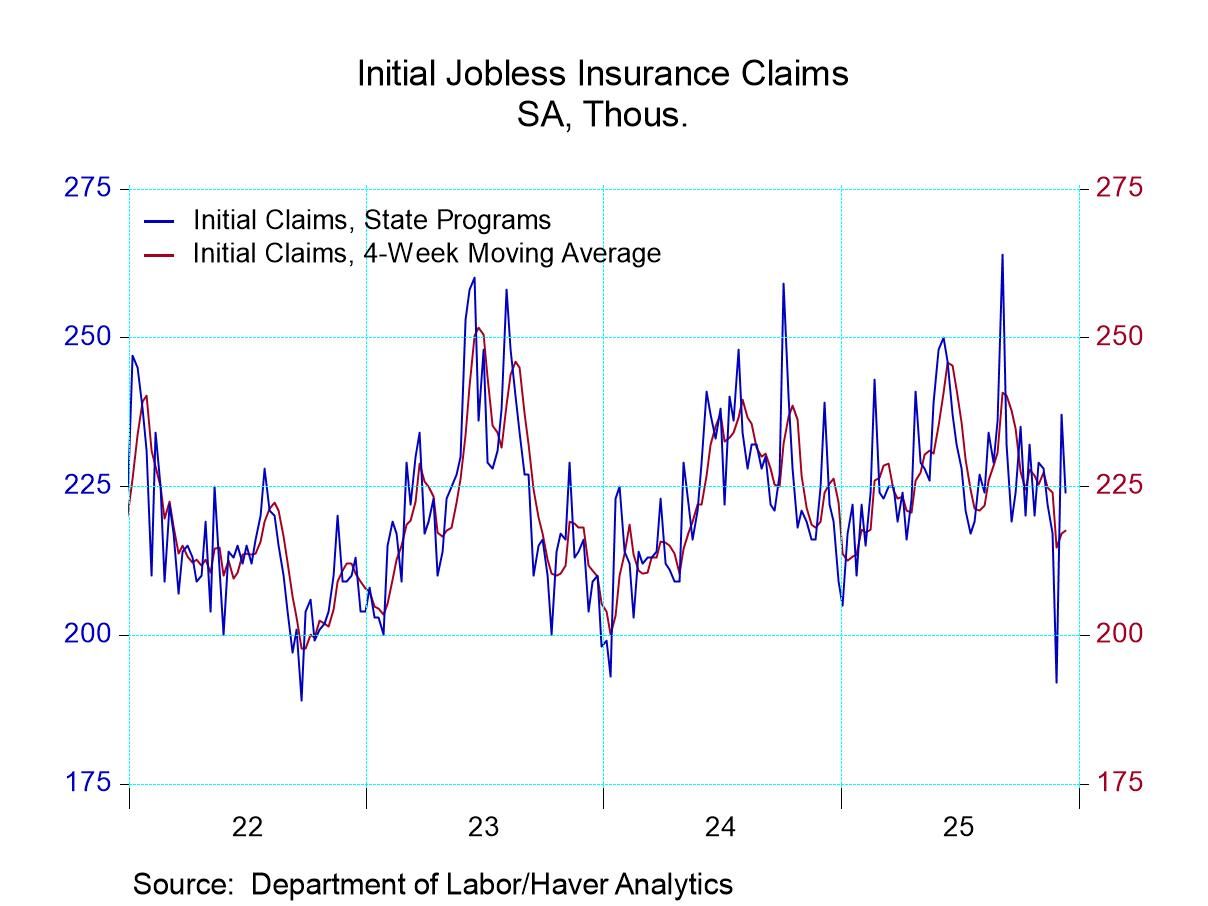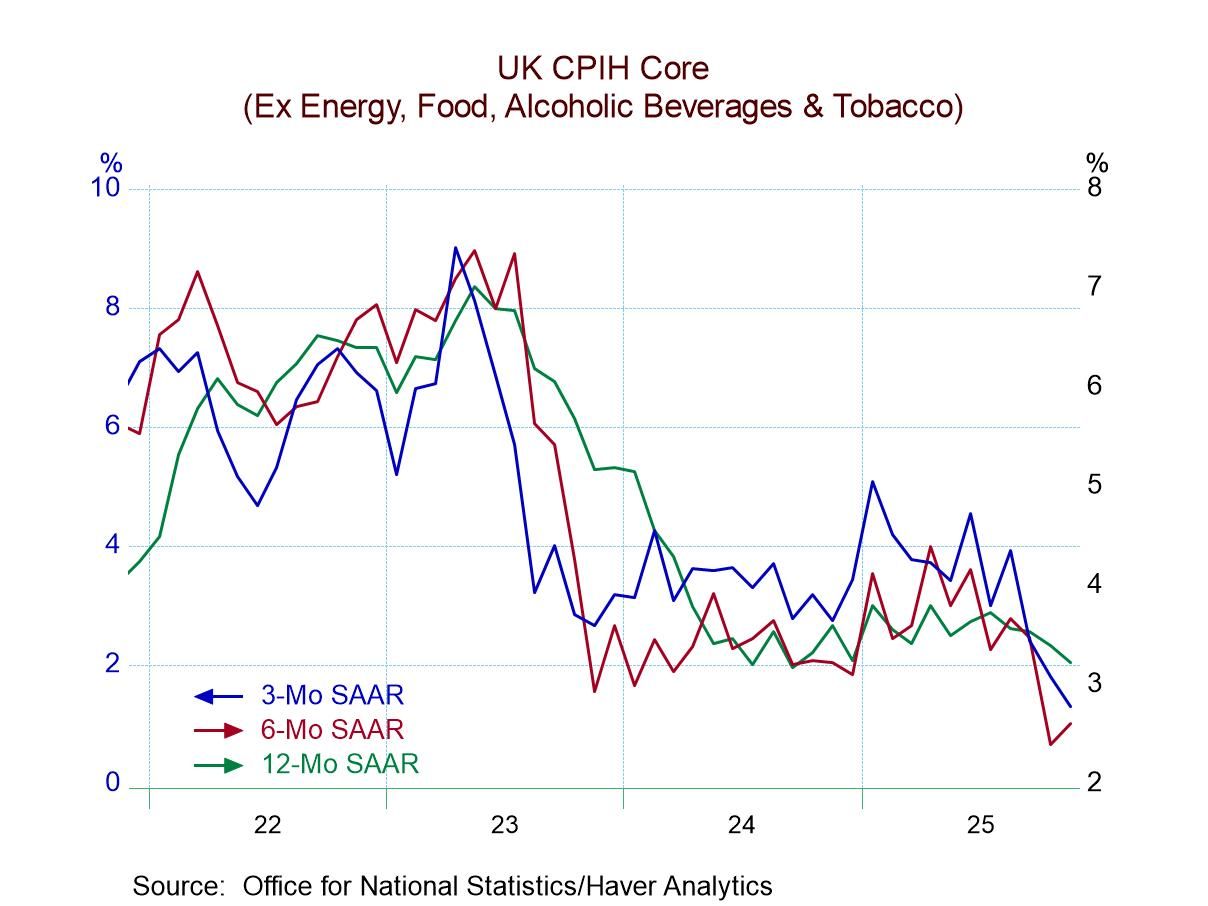 Global| Jun 13 2016
Global| Jun 13 2016Japan's Retail Sales Flounder
Summary
Japan's seasonally adjusted retail sales were flat in April after a 1.5% gain in March. However, sequential sales show spending by consumers has been declining on balance over three-month, six-month and 12-month. Over 12 months, not [...]
 Japan's seasonally adjusted retail sales were flat in April after a 1.5% gain in March. However, sequential sales show spending by consumers has been declining on balance over three-month, six-month and 12-month. Over 12 months, not seasonally adjust data show more strength with nominal sales up by 0.8% (instead of lower by 0.9% SA). But the NSA components show declines over 12 months of 4.7% for food and beverages and of 4.7% for fabric, apparel and accessories.
Japan's seasonally adjusted retail sales were flat in April after a 1.5% gain in March. However, sequential sales show spending by consumers has been declining on balance over three-month, six-month and 12-month. Over 12 months, not seasonally adjust data show more strength with nominal sales up by 0.8% (instead of lower by 0.9% SA). But the NSA components show declines over 12 months of 4.7% for food and beverages and of 4.7% for fabric, apparel and accessories.
Despite the flat April, retail sales are rising in the quarter-to-date on the strength of some lift in March, the last month of the previous quarter. Sales are rising by 1.2% seasonally adjusted in the quarter-to-date.
Consumer confidence continues to be weak and weakening. The diffusion level of confidence is showing weakness with persistent readings below the neutral value of 50. And consumer confidence is falling on all horizons in the table; it is lower month to month as well as over 3-Mo over 6-mo and over 12-Mo.
In addition to that, Japan's business survey index of large manufacturers worsened in the three months ended June. At least the future situation is expected to improve. These metrics are according to the quarterly survey by the Ministry of Finance and the Cabinet office released Monday. The business survey index, or BSI, dropped to -11.1 in the recent three-month period ended in June.
Japan's equity market is in turbulence over concerns about what the Bank of Japan's next plan will be. Of course, there also are the lingering international concerns over Fed policy in the U.S. and Brexit which has become a market focus as the day of reckoning draws near. Japan is not reflating and there is mixed opinion at the BOJ about how well its policy of negative rates is performing. While the plan for a further consumption tax hike has been sidelined, Japan is still struggling. The BOJ has come farther down the road of special programs than other central banks without being able to find that magical mix that helps the economy to turn the corner. International investors in Japan are getting impatient and even concerned. The rating agency Fitch has today kept Japan's overall rating of `A' but has put it on a negative outlook over concern that Japan is not making fiscal progress or no longer has it as a goal.

Robert Brusca
AuthorMore in Author Profile »Robert A. Brusca is Chief Economist of Fact and Opinion Economics, a consulting firm he founded in Manhattan. He has been an economist on Wall Street for over 25 years. He has visited central banking and large institutional clients in over 30 countries in his career as an economist. Mr. Brusca was a Divisional Research Chief at the Federal Reserve Bank of NY (Chief of the International Financial markets Division), a Fed Watcher at Irving Trust and Chief Economist at Nikko Securities International. He is widely quoted and appears in various media. Mr. Brusca holds an MA and Ph.D. in economics from Michigan State University and a BA in Economics from the University of Michigan. His research pursues his strong interests in non aligned policy economics as well as international economics. FAO Economics’ research targets investors to assist them in making better investment decisions in stocks, bonds and in a variety of international assets. The company does not manage money and has no conflicts in giving economic advice.






